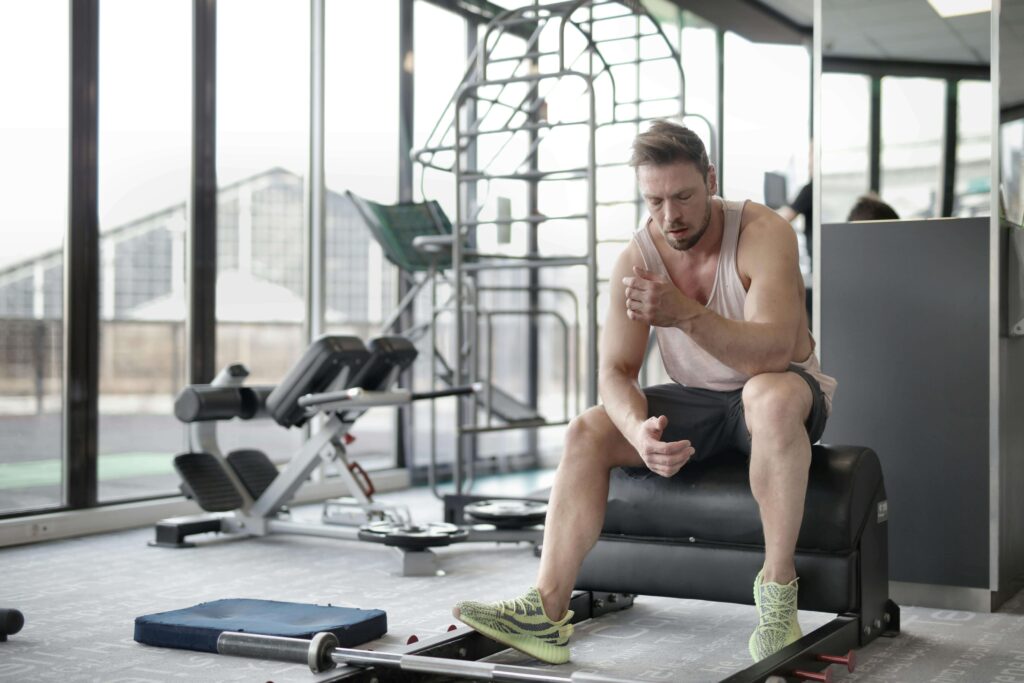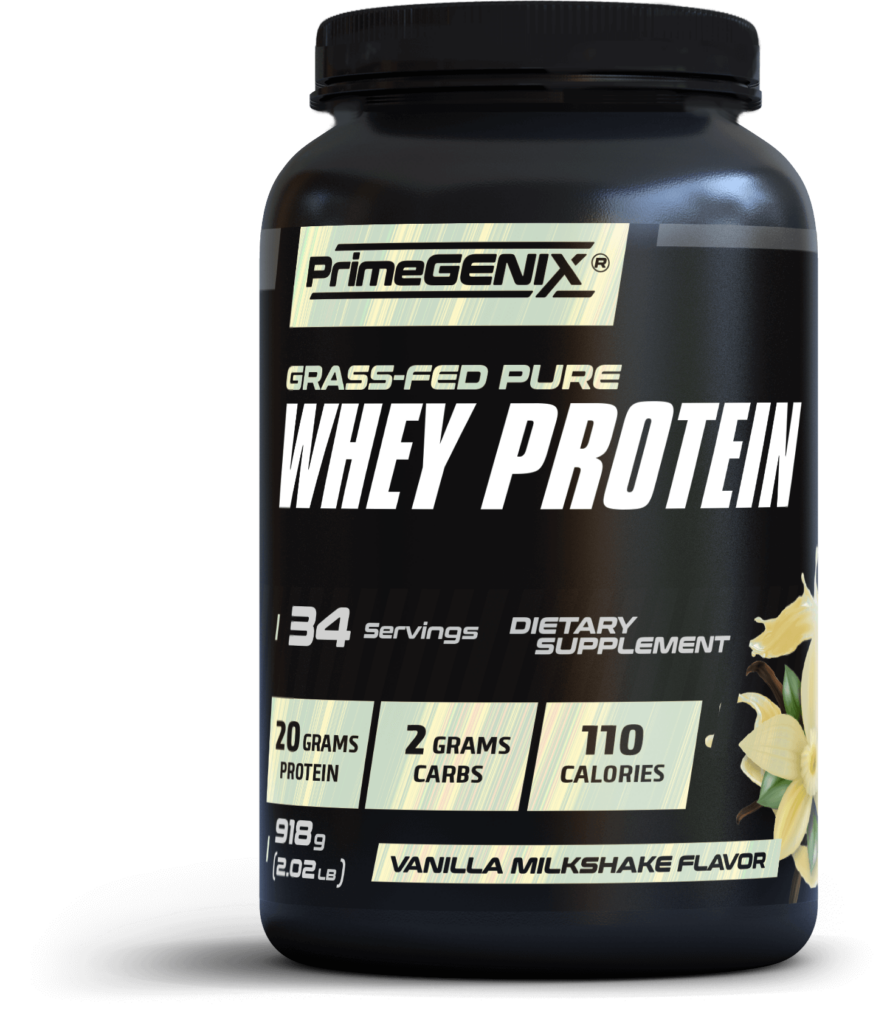Listen up, gym warriors! We need to talk about a shady game in the fitness and supplement world that has us flexing our skepticism muscles – fake protein powder. We know you’re in it to win it, ready to sweat it out, put in the reps, and build those boulder shoulders.
But what if the shakes you’re slamming back to crush your PRs aren’t the real deal?
Imagine finding out that the fuel you use to feed your muscles and sculpt those gains is as fake as the “natural” bodybuilders on social media. It’s not a pretty picture.
The struggle to find legit protein is real, from fly-by-night operations peddling powders packed with who-knows-what to sketchy suppliers slinging knockoffs.
This guide dives deep into the murky waters of counterfeit supps, breaking down the telltale signs of fake protein powder and spilling the beans on some real-life horror stories. Trust us, it’s a jungle out there if you aren’t careful. But don’t worry, we’ve got your back.
Ready to separate the whey from the waste and ensure your gains stay gains? Buckle up and discover how to spot the fakes from a mile away.
Today, we arm you with the knowledge to dominate the gym and emerge savvy and swole.
The Problem with Fake Protein Powder
Protein is the key to muscle growth and recovery, the secret sauce that fuels our gains. However, it’s crucial to recognize that not all protein powders sold are genuine or safe. Some are as fake as spray-on abs at a beach party. You can protect yourself and your gains from these deceptive products by being informed.
So, what’s the lowdown on fake protein powder?
It’s not just a matter of a cheap knockoff with a flashy label. Fake protein is a master of disguise, hiding in plain sight, ready to prey on unsuspecting muscle heads. Counterfeiters are becoming more sophisticated, slapping fake labels on subpar powders and attempting to pass them off as the real deal.
And what exactly is in fake protein powder?
Counterfeit powders often contain fillers, sweeteners, and other unidentified junk that does more harm than good for your gains. Trust us, the last thing you want to do is chug down a shake full of mystery ingredients and untested powders, thinking you’re good to go.
The ugly truth is that fake protein powder is a dirty game with too many risks.
The shady characters in the counterfeit game cut corners, use inferior ingredients, and skimp on quality control to make a quick buck off our quest for gains. Next, we look at the real-world consequences of falling victim to scammers.
Don’t Get Jacked on Junk: The Dangers of Fake Protein Powder
You’ve probably heard the horror stories of guys getting jacked on what they thought was pure protein, only to discover they’ve been duped. Fake protein powder is like bench pressing a barbell made of foam – it might look the part, but when you try to lift heavy, it crumbles under pressure.
Let’s talk about the real risks of chugging down fake protein powder.
Compromised Gains
Fueling your muscles with counterfeit crap is like trying to build a skyscraper with cardboard. You might make some progress, but despite hitting the gym hard and grinding out those reps, you won’t get the gains you want.
Your body needs quality protein to repair and grow. Fake protein is like kryptonite for your gains, holding you back from maximizing your muscle growth.
Health Hazards
Fake protein is a ticking time bomb for your health, potentially causing hormonal imbalances, liver damage, and other severe side effects. Don’t gamble with your health; it’s a recipe for disaster.
Who knows what’s lurking in those counterfeit tubs purporting to be the real deal? They could be filled with synthetic crap, harmful fillers, and maybe even small traces of lead.
Legal Limbo
Getting caught with fake protein powder isn’t only a health risk or an embarrassing purchase. It could land you in hot water with the law.
Consuming illegal substances hidden in counterfeit supplements could score you a one-way ticket to legal hell. Not to mention what those unknown substances could do to your body.
Wasting Hard-Earned Money
You work hard for your money, so don’t throw it away on knockoff supplements. Fake protein powder might be cheaper, but there’s a reason. It will likely cost you big time in the long run.
Ultimately, you may spend more on doctor’s bills than whatever you saved on that sketchy supplement. Invest in your health and wellness now to reap rewards, not regrets.

8 Signs the Protein Powder May Be Fake
When it comes to spotting the fakes, you must keep your radar on high alert for suspicious sellers and inferior products.
From packaging and labeling to appearance and results, here are some signs that indicate a protein powder may be fake:
- Sketchy Labels – Labels shouldn’t have spelling errors, blurry print, inconsistent branding, or look like they were slapped together in a basement somewhere.
- Suspicious Packaging – Packaging looks off-brand or lacks the professional polish you expect from reputable supplement brands.
- Weird Smell or Taste – Protein powder shouldn’t smell like some funky chemical concoction or a science experiment gone wrong, nor should it taste like a dumpster.
- Dodgy Sellers – Sellers on social media platforms with sketchy websites (or no websites) are a surefire red flag.
- Lack of Transparency – Legit supplement brands don’t make it challenging to find basic information about what’s in their protein powder or where it’s manufactured.
- Unrealistically Low Prices – Quality protein isn’t cheap, so if the price seems too good to be true, it probably is.
- No Third-Party Testing – Reputable brands invest in testing to ensure their supplements meet the highest quality and safety standards.
- Instant Results or Weird Side Effects – Rapid gains or strange side effects after using a new protein powder are signs that something’s fishy since genuine gains take time.
Counterfeit supplements are the ultimate buzzkill if you’re chasing gains. The risks aren’t worth it, so do yourself a favor and stick to the real deal. Quality always trumps quantity, especially when it comes to your health.
How to Avoid Fake Protein Powder
Now that we’ve sniffed out the stench of fake protein powder, it’s time to learn how to navigate the sometimes treacherous waters of the supplement industry and dodge those shady counterfeiters.
With these five tips in your arsenal, you can be confident you’re getting the real deal.
#1 Buy Direct
Don’t mess around with third-party resellers or sketchy websites. Stick with the real deal and buy directly from the manufacturer’s website or Amazon storefront.
Depending on the product, buying from the official brand website may afford you bulk savings, special deals, and excellent customer service. It will also ensure you get an authentic supplement, typically backed by a money-back guarantee.
#2 Look Closely at Packaging and Labels
Don’t judge a protein powder by its flashy label alone. Look a little closer at the packaging and labels. Are there signs of tampering? Are there inconsistencies or limited ingredient information?
Legitimate supplement companies have crisp, professional packaging and labels that scream quality with transparent ingredient lists and nutritional information. If the label looks a bit too DIY, leave it alone.
#3 Research the Brand
Is the brand committed to quality, safety, and customer satisfaction? Does it submit its products for third-party testing? Does it choose science-backed ingredients for its products?
Doing homework on a supplement brand can save you from dropping your hard-earned cash on a tub of fake protein powder. Legit brands are proud to flaunt their ingredients and manufacturing processes.
Do some digging online – check their website, read reviews and testimonials from real-world users, and see if the company has certifications or endorsements from reputable sources.
#4 Don’t Get Lured by Unrealistic Deals
Scammers offer unbelievable discounts and once-in-a-lifetime deals to lure unsuspecting fitness enthusiasts into buying fake protein powder. Stay vigilant, and don’t fall for their traps.
Quality supplements come at a price. If the deal seems too good to be true, it usually is. Your gains (and your health) are worth investing in.
#5 If It Feels Off, Walk Away
Listen to your instincts if something feels off about the seller or the powder. At the end of the day, your gut knows what’s up.
Stay sharp, don’t ignore any of the red flags we discussed earlier, and walk away if you have any doubts.

Protect Your Gains, Stick to the Good Stuff
When buying protein powder, take the time to verify you’re getting the real deal. Your gains and health are on the line, so don’t take any chances with sketchy fly-by-night supplements.
Your body deserves the best, so check out our Whey Protein Isolate. It’s a solid choice to fuel your workouts and support your muscle-building goals.
Spread the word to your gym buddies so we all stay informed, healthy, and strong. Stay smart, and keep crushing those PRs!

